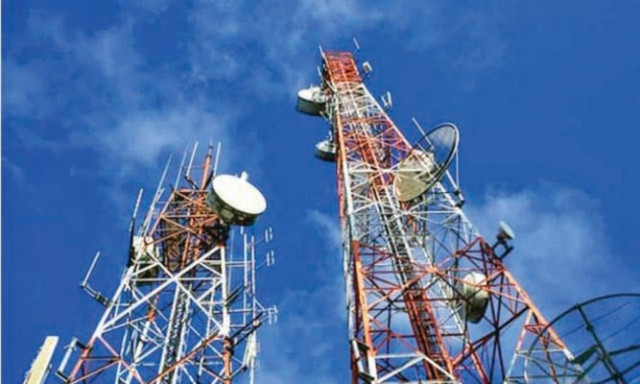Internet suspension: Country’s telecom firms suffer Rs1.6b loss
Govt unable to receive Rs570m in revenue from companies as well

The mobile broadband internet services on Thursday remained suspended for the consecutive third day in several parts of the country in the aftermath of the riots triggered by the arrest of PTI Chairman Imran Khan, causing a loss of Rs1.6 billion to telecom companies.
The government suffered a loss of Rs570 million in revenue from telecom companies as well.
The suspension is affecting e-commerce, online services, home delivery and ride-hailing apps too.
Lahore High Court’s Justice Abid Aziz Sheikh sought replies from the federal government and Pakistan Telecommunication Authority (PTA) by May 22 in a plea seeking directions to restore the internet services and resume the operations of social media platforms including WhatsApp, Facebook, Twitter and Instagram.
However, Justice Sheikh turned down the petitioner’s request to grant interim relief by immediately passing directions to restore the internet services.
Read more: Internet suspension results in Rs820m loss
The petitioner had requested to declare the impugned blockage as arbitrary, illegal, unlawful and unconstitutional, which was tantamount to depriving the public of their basic right.
As the proceedings commenced, the petitioner’s counsel argued that the people’s life had been ruined by blocking the internet services.
To which, the lawyer representing the federal government, argued that blocking the internet services had become necessary under the prevailing circumstances.
Justice Sheikh asked whether or not the internet services could be blocked even if an issue of national security erupted.
The petitioner’s lawyer argued that the internet services could not be blocked even if there was a national security issue.
The petition was filed by Abuzar Salman Khan Niazi, who named as respondents the Federation of Pakistan through the information technology and telecommunication ministry secretary; Pakistan Telecommunication through its chairman, CM Pak Limited through its CEO, Pakistan Telecom Mobile Limited among others
He contended in the petition that on May 9, the PTI chief was arrested and later the development caused countrywide protests as result of which the internet services were blocked.
The petitioner implored that it was a settled principle of law that information on matters of public importance was the foundational bedrock of a democracy and the accountability of its elected representatives.
He pointed out that the country’s superior judiciary had upheld the principle of maximum disclosure by saying that “as a rule, information should be disclosed an only as an exception privilege should claimed on justifiable grounds”.
He contended that the Supreme Court in its judicial pronouncements had emphasised that making access to information was a justiciable right of the people and further stressed that all information which could be of any public importance must be made available to the people.
The petitioner added that this right had been conferred on the people of Pakistan under Article 19-A of the Constitution.
He continued that this right could not be abridged, curtailed and eliminated through the imposition of a blanket ban or prohibition orders.
Thus, he asked the court that the blockage of the internet service was liable to be set aside.
The PTI chairman and deposed premier was arrested from inside the premises of the Islamabad High Court on Tuesday, paving the way for protests in many cities of the country by his party activists and supporters as they clashed with police and destroyed public properties.



















COMMENTS
Comments are moderated and generally will be posted if they are on-topic and not abusive.
For more information, please see our Comments FAQ